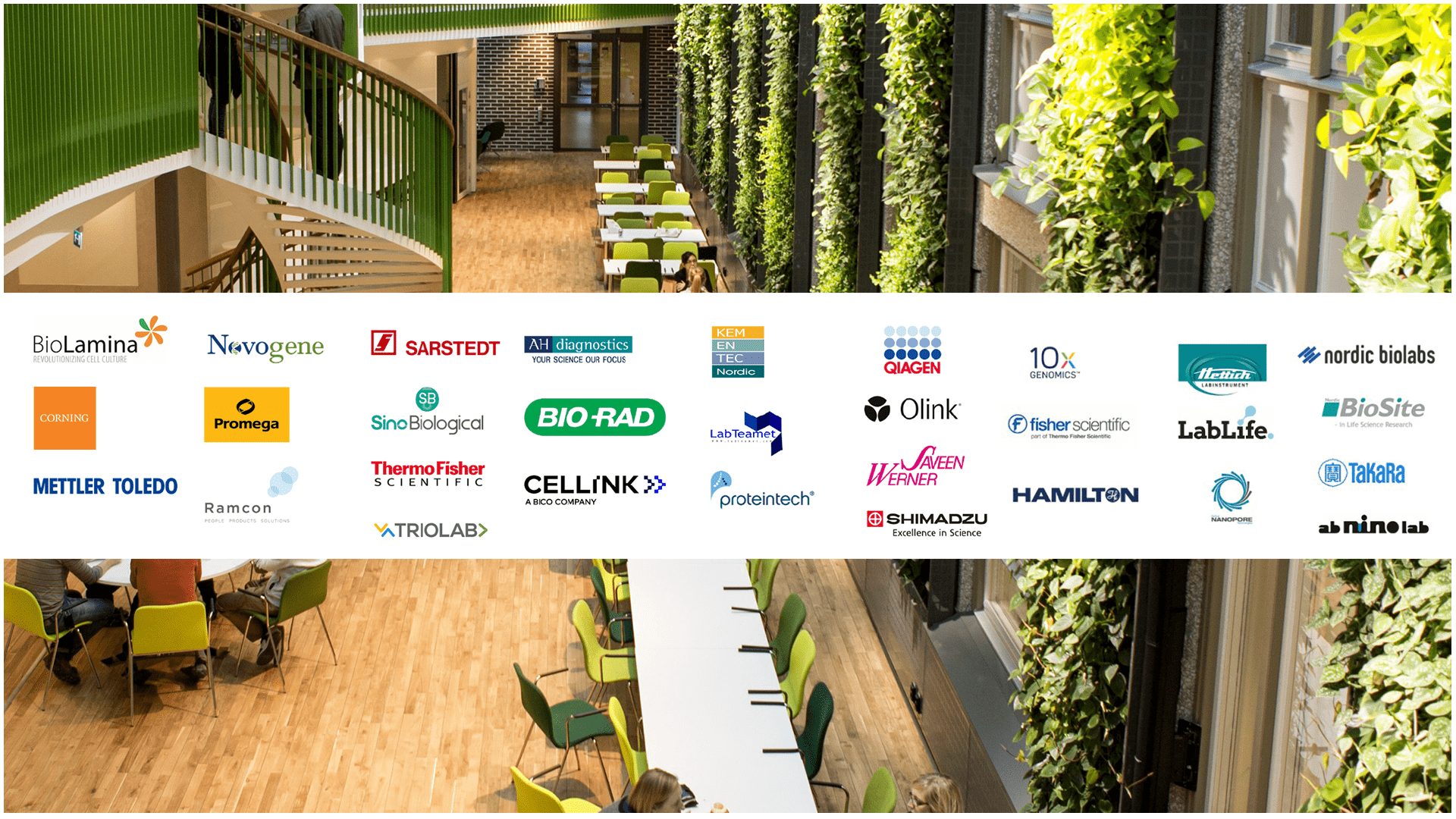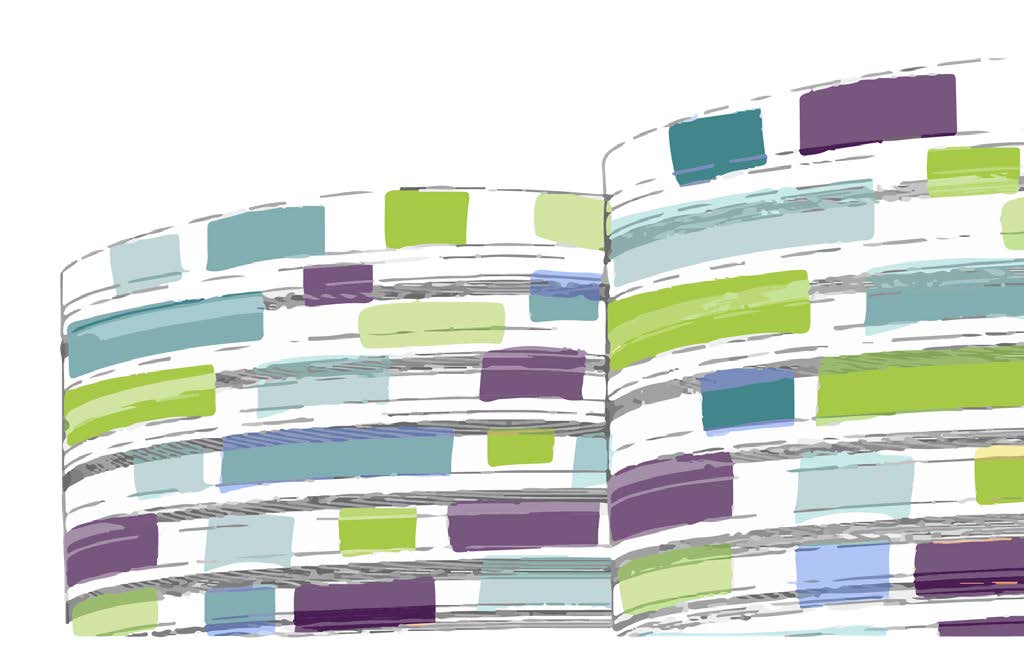DDLS Annual Conference
November 13, 2024 @ 11:30 – November 14, 2024 @ 12:30 CET
The Data-driven Life Science program, supported by the Knut and Alice Wallenberg Foundation (KAW), will hold the DDLS Annual conference on November 13 – 14, 2024, in the Auditorium of Hilton Slussen, Stockholm.
We are thrilled to invite you to the third on-site DDLS Annual Conference. The Conference highlights DDLS research and program activities and informs about the diverse services available for researchers across Sweden.
The two-day event offers an opportunity for the DDLS community to get to know each other, share and discuss research findings, exchange ideas and insights, network for collaboration and career development, and learn things outside your field of expertise.
This year, we aim to create an inspiring and dynamic environment where a broad data-driven community with senior and junior scientists and the DDLS Fellows, their PhDs, and postdocs can meet and interact, find collaborations, and listen to inspiring research.
Directly after the conference, in the same venue, the SciLifeLab Data Centre will arrange hands-on workshops, free for everyone interested in signing up. Note that the Data Centre workshops are a separate registration.
Read more and register for the workshops ->
Poster session
The DDLS Annual Conference Best Poster Award encourages the submission and exhibition of high-quality posters by young scientists, including Ph.D. students, postdoctoral researchers, etc. The poster should be on a topic related to data-driven life science. The Prize, which is based upon the decision of a Scientific Committee-appointed Jury, consists of a certificate and a travel grant of up to 5,000 SEK. The travel must be booked and ordered through the DDLS program office, following the regular University travel policy. The trip should be completed before 2025-12-31.
The DDLS annual conference best poster award 2022 was given to Adelina Rabenius (KTH) for her poster Gene length times the production of HSP and 2023 to David Fernandez Bonet (KTH) for his poster on Processing spatial networks through UMI.
Registration
Registration and Poster submission deadline Oct. 21.
We will live-stream the Talks to SciLifeLab YouTube channel. Don´t register if you want to follow the event on YouTube. Register only if you will attend onsite at Hilton Slussen. The talks will not be recorded and saved, only streamed live.
The venue has 285 seats, so remember to cancel if you can’t come.
If you have questions, please contact events@SciLifeLab.se

Speakers
Patrick Bryant, DDLS Fellow, Stockholm University.
My research tries to answer questions about the evolution of proteins and how this information – or the lack of it – can be used to create a new range of AI tools. The tools I have developed make it possible to predict the structure of protein interactions and to design new molecules that bind to proteins. I aim to create a universal molecular framework, where any molecule can be predicted to create new molecular functions e.g. therapeutic applications.
Laura Carroll, DDLS Fellow, Umeå University.
Secondary metabolites (SMs) produced by microbes have critically important roles in human health. While some microbial SMs can be leveraged as essential therapeutics (e.g., antimicrobials, anticancer agents), others have negative impacts on host health (e.g., toxins, carcinogens, pathogen virulence factors). A large proportion of the enzymatic pathways responsible for microbial SM production are encoded by physically clustered groups of genes called biosynthetic gene clusters (BGCs). (Meta)genomic data derived from microbes thus offers tremendous potential as a reservoir for novel BGCs associated with novel SMs. Here, we discuss recent advances in (meta)genome mining approaches for BGC discovery, with an emphasis on rapid computational methods, which allow us to gain insights into the biosynthetic potential of microbial isolates and communities at unprecedented scales.
Camila Consiglio, DDLS Fellow, Lund University
Immune-mediated diseases exhibit marked sex bias, with men displaying more severe infections and higher rates of cancer, while women exhibit heightened vaccine responses and prevalence of autoimmunity. Sex hormones are key mediators of such sexual dimorphism, though we currently lack a comprehensive understanding of mechanisms underlying sex differences in human immunity. The Consiglio Lab employs in vitro mechanistic studies and in vivo systems-level immunomonitoring approaches to disentangle the immunological factors contributing to sexual dimorphism in human immunity. Identifying pathways involved in immune sexual dimorphism represents an important step towards precision medicine by enabling tailored treatment for immune-mediated diseases according to one’s biological sex.
Malvika Sharan, Senior Researcher, Open Research, Tools, Practices and Systems, The Alan Turing Institute, London, UK
Bio: I am a Senior Researcher at The Alan Turing Institute in London with specialisations in open research and community building. With a PhD in Bioinformatics, I kicked off my professional journey at the European Molecular Biology Laboratory and discovered my passion at the crossroads of research and community impact. I am the co-lead of The Turing Way and the lead of a team of research community managers, both working towards making data science a diverse, global and collaborative effort.
I also co-founded OLS (previously Open Life Science), a non-profit organisation on a mission to build the next generation of diverse leaders through open science. I am a Software Sustainability Institute fellow and have proudly made it to the 100 Brilliant Women in AI Ethics™ – 2024 list. My previous contributions to open science initiatives include advisory roles for NASA TOPS, Society of RSE, Open Bioinformatics Foundation, and MetaDocencia.
- Samuel Kaski, Professor, Aalto University, Finland and University of Manchester, UK
- Sven Nelander, Professor, Uppsala University
- Roser Vento-Tormo, Group leader, Wellcome Sanger Institute, UK
- Jakob Vogel, DDLS Fellow, Lund University
- Aleksej Zelezniak, Associate Professor, Chalmers University of Technology
Program
The titles will be updated as soon as possible
SciLifeLab and Wallenberg National Program for Data-driven Life Science (DDLS) is a 12-year initiative funded with a total of SEK 3.1 billion from the Knut and Alice Wallenberg Foundation. The purpose of the program is to train and recruit the next generation of life scientists, to create a strong computational and data science base, and to strengthen the competencies in today’s research society, thereby enabling every scientist to analyze data patterns better and integrate their data with the global data flows in life sciences. Furthermore, the program aims to strengthen national collaborations between universities, bridge the research communities of life sciences and data sciences, and create partnerships with industry, healthcare and other national and international actors. The program focuses on four strategic areas for data-driven research, all of which are essential for improving the lives of people as well as animals and nature, detecting and treating diseases, protecting biodiversity and creating sustainability.
SciLifeLab, which conducts research activities at all major Swedish universities today, provides a national infrastructure and functions as a hub for life sciences in various disciplines, is the program’s main host.


